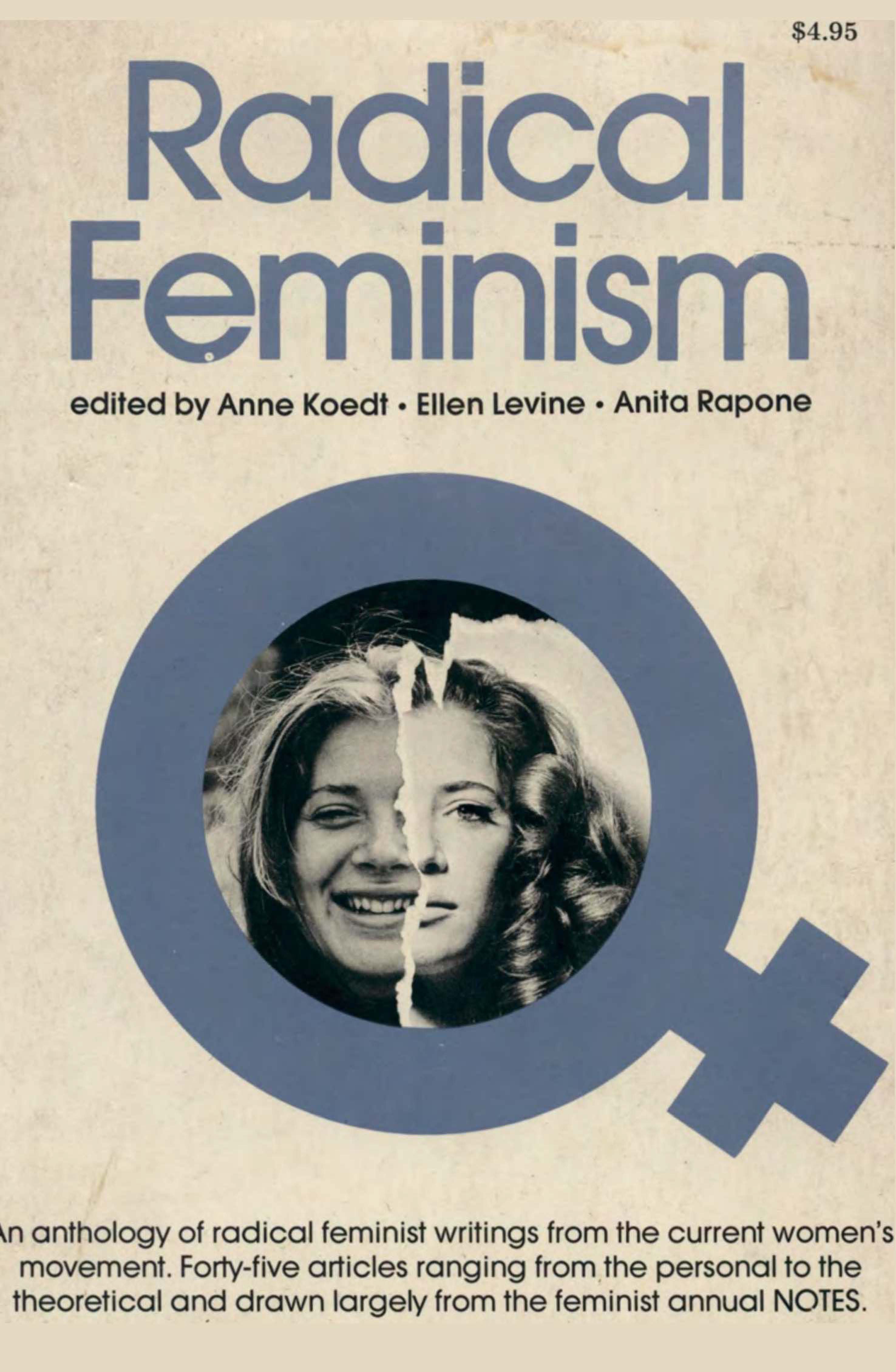
Source: Radical Feminism, edited by Anne Coedt, Ellen Levine, Anita Rapone, Copyright © 1968 by Kate Millett, and reprinted with the permission of the author. This article appeared in Notes From the Second Year.
Kate Millett is a writer, film maker, sculptor and active feminist. She is the author of Sexual Politics and The Prostitution Papers. This manifesto was written in 1968 in connection with the organizational meeting of the first women’s liberation group at Columbia University. Both The Columbia Spectator and the Columbia Radio Station refused to publish or broadcast it, even though it was written by a faculty member to whom they had promised the space and time.
When one group rules another, the relationship between the two is political. When such an arrangement is carried out over a long period of time it develops an ideology (feudalism, racism, etc.). All historical civilizations are patriarchies: their ideology is male supremacy.
Oppressed groups are denied education, economic independence, the power of office, representation, an image of dignity and self respect, equality of status, and recognition as human beings. Throughout history women have been consistently denied all of these, and their denial today, while attenuated and partial, is nevertheless consistent. The education allowed them is deliberately de signed to be inferior, and they are systematically programmed out of and excluded from the knowledge where power lies today – e.g., in science and technology. They are confined to conditions of economic dependence based on the sale of their sexuality in marriage, or a variety of prostitutions. Work on a basis of economic independence allows them only a subsistence level of life-often not even that. They do not hold office, are represented in no positions of power, and authority is forbidden them. The image of women fostered by cultural media, high and low, then and now, is a marginal and demeaning existence, and one outside the human condition which is defined as the prerogative of man, the male.
Government is upheld by power, which is supported through consent (social opinion), or imposed by violence. Conditioning to an ideology amounts to the former. But there may be a resort to the latter at any moment when consent is withdrawn – rape, attack, sequestration, beatings, murder. Sexual politics obtains consent through the “socialization” of both sexes to patriarchal policies. They consist of the following:
1) the formation of human personality along stereotyped lines of sexual category, based on the needs and values of the master class and dictated by what he would cherish in himself and find convenient in an underclass: aggression, intellectuality, force and efficiency for the male; passivity, ignorance, docility, “virtue,” and ineffectuality for the female.
2) the concept of sex role, which assigns domestic service and attendance upon infants to all females and the rest of human interest, achievement and ambition to the male; the charge of leader at all times and places to the male, and the duty of follower, with equal uniformity, to the female.
3) the imposition of male rule through institutions: patriarchal religion, the proprietary family, marriage, “The Home,” masculine oriented culture, and a pervasive doctrine of male superiority.
A Sexual Revolution would bring about the following conditions, desirable upon rational, moral and humanistic grounds:
1) the end of sexual repression-freedom of expression and of sexual mores (sexual freedom has been partially attained, but it is now being subverted beyond freedom into exploitative license for patriarchal and reactionary ends).
2) Unisex, or the end of separatist character-structure, temperament and behavior, so that each individual may develop an entire rather than a partial, limited, and conformist-personality.
3) re-examination of traits categorized into “masculine” and “feminine,” with a total reassessment as to their human usefulness and advisability in both sexes. Thus if “masculine” violence is un desirable, it is so for both sexes; “feminine” dumb-cow passivity likewise. If “masculine” intelligence or efficiency is valuable, it is so for both sexes equally, and the same must be true for “feminine” tenderness or consideration.
4) the end of sex role and sex status, the patriarchy and the male supremacist ethic, attitude and ideology-in all areas of endeavor, experience, and behavior.
5) the end of the ancient oppression of the young under the patriarchal proprietary family, their chattel status, the attainment of the human rights presently denied them, the professionalization and therefore improvement of their care, and the guarantee that when they enter the world, they are desired, planned for, and pro vided with equal opportunities.
6) Bisex, or the end of enforced perverse heterosexuality, so that the sex act ceases to be arbitrarily polarized into male and female, to the exclusion of sexual expression between members of the same sex.
7) the end of sexuality in the forms in which it has existed historically – brutality, violence, capitalism, exploitation, and warfare that it may cease to be hatred and become love.
8) the attainment of the female sex to freedom and full human status after millennia of deprivation and oppression, and of both sexes to a viable humanity.